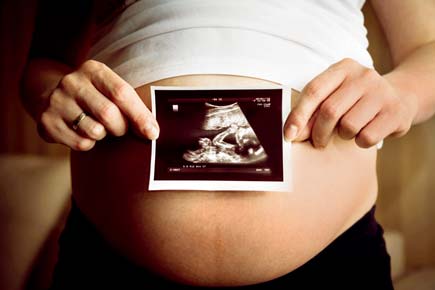Infant battling for life with rare condition that deformed his brain and spine at KEM NICU; parents might put him up for adoption as they can't afford treatment


The couple got to know about the condition when the mother was 24 weeks into the pregnancy. Representational pic
ADVERTISEMENT
'We have to see our child die in front of our eyes, do you know how traumatic that is," asks Ajit Mehra (name changed), father of a child who was born on July 1, with a rare condition that has deformed his brain and spine. The Supreme Court on March 27 disallowed Mehra's 28-year-old wife to abort the foetus at 27 weeks, claiming that the child could be born alive during abortion.
Also read: Baby born in Pakistan has heart outside body
'Lack financial strength'
Now, they have to watch their baby battle for life. Mehra's wife gave birth to the child on midnight Saturday at KEM Hospital. The child was born with Arnold Chiari Type II syndrome, which is a type of structural deformation of the cerebellum and the brain stem.
Also read: India's first 'Harlequin Baby' dies at Nagpur hospital
"We got to know about the abnormality when she was 24 weeks pregnant and that is why we approached the court. But they didn't listen to our plea. The child will need spine and brain surgery. I don't have the financial strength to continue with the treatment," said Mehra. A doctor treating the newborn said that he is in a serious condition and kept under observation.
Will law change?
This incident once again brings to light the country's abortion laws. Several recommendations have already been submitted to the central government to amend the Medical Termination Of Pregnancy Act, 1971 that prohibits any termination after 20 weeks of pregnancy. Medical experts have raised the need to increase the time of termination as India lacks the infrastructure for early determination of abnormality in the foetus as parents often come late for registration or treatment.
Also read: Baby born with bizarre genetic disorder at Nagpur hospital
But there is hope, as the government might bring changes in the act. Dr Nozer Sherier from the Federation of Obstetrics and Gynaecological Societies of India said, "We have already submitted several guidelines to make amendments in the act. If they come into the act, there would be no need to approach courts," said Sherier.
 Subscribe today by clicking the link and stay updated with the latest news!" Click here!
Subscribe today by clicking the link and stay updated with the latest news!" Click here!






